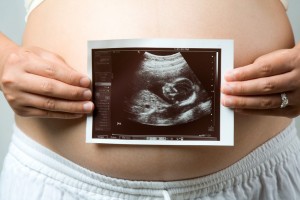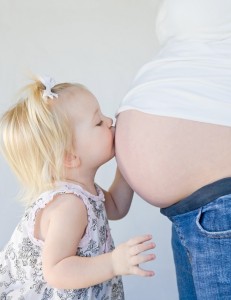 Happy pregnancy, happier baby? Yes, according to a recent report on a UK study. At age 18, the children of mothers who had depression during pregnancy were found to be 1.3 times more likely than normal to develop depression themselves.
Happy pregnancy, happier baby? Yes, according to a recent report on a UK study. At age 18, the children of mothers who had depression during pregnancy were found to be 1.3 times more likely than normal to develop depression themselves.
The data came from the Avon Longitudinal Study of Parents and Children, which is hosted by the University of Bristol. More than 14,000 mothers were enrolled during pregnancy in 1991 and 1992, and the study has tracked the health of their children ever since (oh, how I love me a good longitudinal study. We need some to study the long-term effects of psychotropic drugs!).
To make the depression association, the study followed the children of more than 8,000 mothers who had pre- or post-natal depression. The findings were published in the Journal of the American Medical Association (JAMA).
In response to the findings, lead researcher Dr. Rebecca Pearson told the BBC that “depression in pregnancy should be taken seriously and treated in pregnancy,” with Professor Carmine Pariante of King’s College London’s Institute of Psychiatry making the case for treatment during pregnancy as a preventive measure to help alleviate suffering in the next generation.
 Pain and suffering aside for a moment, there could be potential cash savings in this approach. In software development, it’s well understood that the earlier you discover bugs in the development lifecycle, the lower the cost of fixing them later. Even better, pump up the quality in the very beginning of development, and you won’t have bugs to fix later. Health can be viewed the same way. The earlier we find the illness, the less costly it is to treat, but it’s even less expensive to devote financial resources to prevention and nip it before it buds, right?
Pain and suffering aside for a moment, there could be potential cash savings in this approach. In software development, it’s well understood that the earlier you discover bugs in the development lifecycle, the lower the cost of fixing them later. Even better, pump up the quality in the very beginning of development, and you won’t have bugs to fix later. Health can be viewed the same way. The earlier we find the illness, the less costly it is to treat, but it’s even less expensive to devote financial resources to prevention and nip it before it buds, right?
The concept of a pregnant woman’s depression affecting her fetus makes perfect sense to me, as Mum’s chemistry is the baby’s chemistry, to a large degree. So, mummies-to-be, if you’re dealing with depression during your trimesters, don’t feel shy to seek help. You could be doing your future child a huge favor at the same time that you’re taking care of yourself.
Has anyone had experience with pre-natal depression? I feel like I’ve heard much more about post-partum, so I’d be really interested to hear about symptoms, issues and treatments that come into play for ladies with living lumps.
If you liked this article, subscribe to my blog and you’ll get my weekly posts. (Your email address will NOT be sold, shared, or written on a bathroom wall – that’s a promise.)